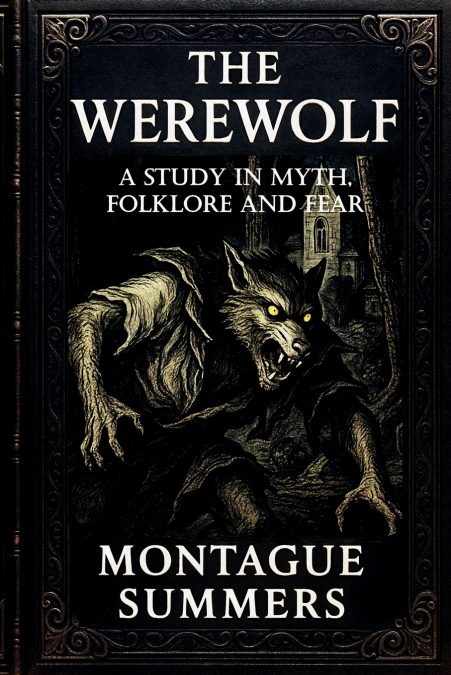
Montague Summers
First published in 1933, Montague Summers’ The Werewolf stands as one of the most complete and enduring studies of lycanthropy in the English language. Unlike modern treatments that reduce werewolves to metaphor or monster-movie cliché, Summers approached his subject with deadly seriousness-believing, quite literally, in the Devil, in witches, and in the reality of shape-shifting evil.What makes this book extraordinary is not merely its flamboyant style but the sheer range and depth of its sources. Summers draws on medieval chronicles, ecclesiastical texts, inquisitorial records, and folk legends to reconstruct the history of the werewolf across centuries, cultures, and nations. He weaves a tapestry of horror, as scholarly as it is unsettling, from the infamous trials of 16th-century France and Germany to the theological debates on the nature of the beast within.Despite his eccentricity, Summers was no amateur. His bibliography is vast, his Latin unerring, and his commitment to documenting the truth-however supernatural-unshakeable. For readers of horror and folklore, The Werewolf is a chilling gothic curiosity. For serious students of European superstition, religious history, or the darker side of anthropology, it remains essential: a cornerstone text that no serious scholar of the supernatural can afford to ignore.This edition of The Werewolf by Montague Summers brings back one of the most important and complete studies ever written on the werewolf legend. Now reprinted in a beautifully formatted edition, this version includes a curated selection of rare illustrations-including woodcuts from the 15th to 18th centuries, evoking the haunting atmosphere of Europe’s darkest beliefs.A must-read for scholars of the occult, horror fans, and anyone fascinated by the supernatural, this edition offers a chilling journey into the monstrous and the mystical.Published by Serpent Books, this version remains faithful to the original while adding carefully chosen visual elements.With a comprehensive new preface by anthropologist Nikolas Arhem.